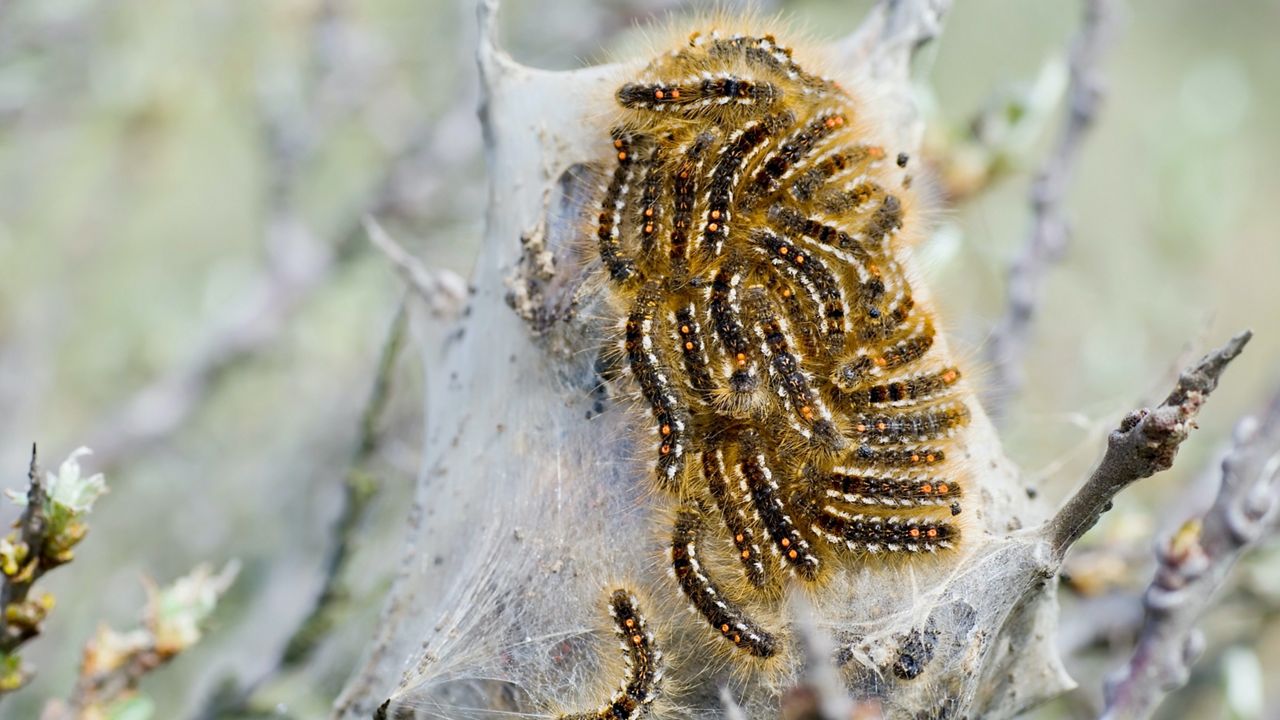Betsey Miller owns property in Maine and has been vacationing here for years, but her experience with browntail moths last spring has her mulling a delayed return this year.
She said the rash she suffered was so severe, it drove her to go to an emergency clinic to get a steroid.
“If that had been my first experience of Maine, I’m pretty sure I would have never come back,” she told lawmakers Tuesday. “It was such a horrible experience.”
Miller was one of six people to testify at a public hearing in favor of LD 1929, “An Act to Provide Assistance to Areas Severely Infested with Browntail Moths.” Sponsored by Rep. Allison Hepler (D-Woolwich), the bill calls for the state to create a $150,000 program that allows local cities and towns or nonprofits to apply for funding to control the moths.
It also adds two entomologist positions to the state Department of Agriculture, Conservation and Forestry at a cost of $189,074.
“The toxic hairs of BTM caterpillars cause skin rashes and can lead to serious respiratory distress,” Hepler told members of the Legislature’s Agriculture, Conservation and Forestry Committee. “These caterpillars are voracious defoliators of many of our hardwood trees.”
Hepler, who serves on the Woolwich select board, said cities and towns across the state have taken a variety of approaches to dealing with the issue. She said in Bath, they have a committee and an arborist who produces videos to help guide citizens on how to combat the pests. In Waterville, they’ve dedicated $100,000 to pay for insecticide treatments and in Blue Hill, the local library allows residents to loan out pole saws so they can cut the nests out of the trees on their properties.
“Towns like the ones I represent have no resources to do this kind of work,” she said.
She also noted that the state has declared February Browntail Moth Awareness Month. A press release from the state notes that Maine has been experiencing an outbreak of the moths since 2015 and that they typically settle in oak, apple, crabapple, pear, birch, cherry and other hardwood trees.
Hepler said she knows of a resident who used a shotgun to get a moth nest out of his tree and that an entrepreneur is exploring the use of drones to combat them. Because the nests are often high up in trees, it’s difficult for many residents to find easy solutions, she said.
In testimony on Tuesday, Maine Forest Service Entomologist Allison Kanoti described the $150,000 for cities and towns as a “small step toward supporting communities.”
“The browntail moth continues to increase, the core areas affected are shifting and the overall trajectory of the outbreak continues to rise,” she said.
Kanoti said the state needs additional staff to address the moths and other threats to the forest, including Asian longhorn beetles, hemlock wooly adelgids and spruce budworm. She said over the last 20 years, state staffing has dropped at the same time “threats to forest health have increased.”
Rep. Thomas Skolfield (R-Weld) asked Kanoti if the bill goes far enough to address the problem.
“I’ve seen sometimes in the past, and don’t get me wrong, where state government has taken a band-aid approach, a feel-good approach to say we’re working on the problem, but the problem never really goes away,” Skolfield said. “Do you feel this will provide a substantive reduction in the browntail moth?”
Kanoti said the bill will help more people get involved in fighting the moths. She said in her experience, cities and towns are so overwhelmed with other problems they don’t have the ability to focus on browntail moths.
“I don’t believe it is going to provide an overall substantive reduction in the browntail moth population, but it could make a difference for some towns or other organizations to make that decision to engage,” Kanoti said.
Skolfield then asked what it would take to make a difference. Kanoti said she would gather more information and get back to lawmakers at the work session.
“We need to be very proactive in mitigating this thing as quickly and as efficiently as possible,” Skolfield said.
Other bill supporters included the Maine Woodland Owners, Maine Forest Products Council and Maine Municipal Association.
“As the browntail moth infestation has moved, it’s now clearly an issue of statewide public health significance,” said Rebecca Graham of the municipal association.



